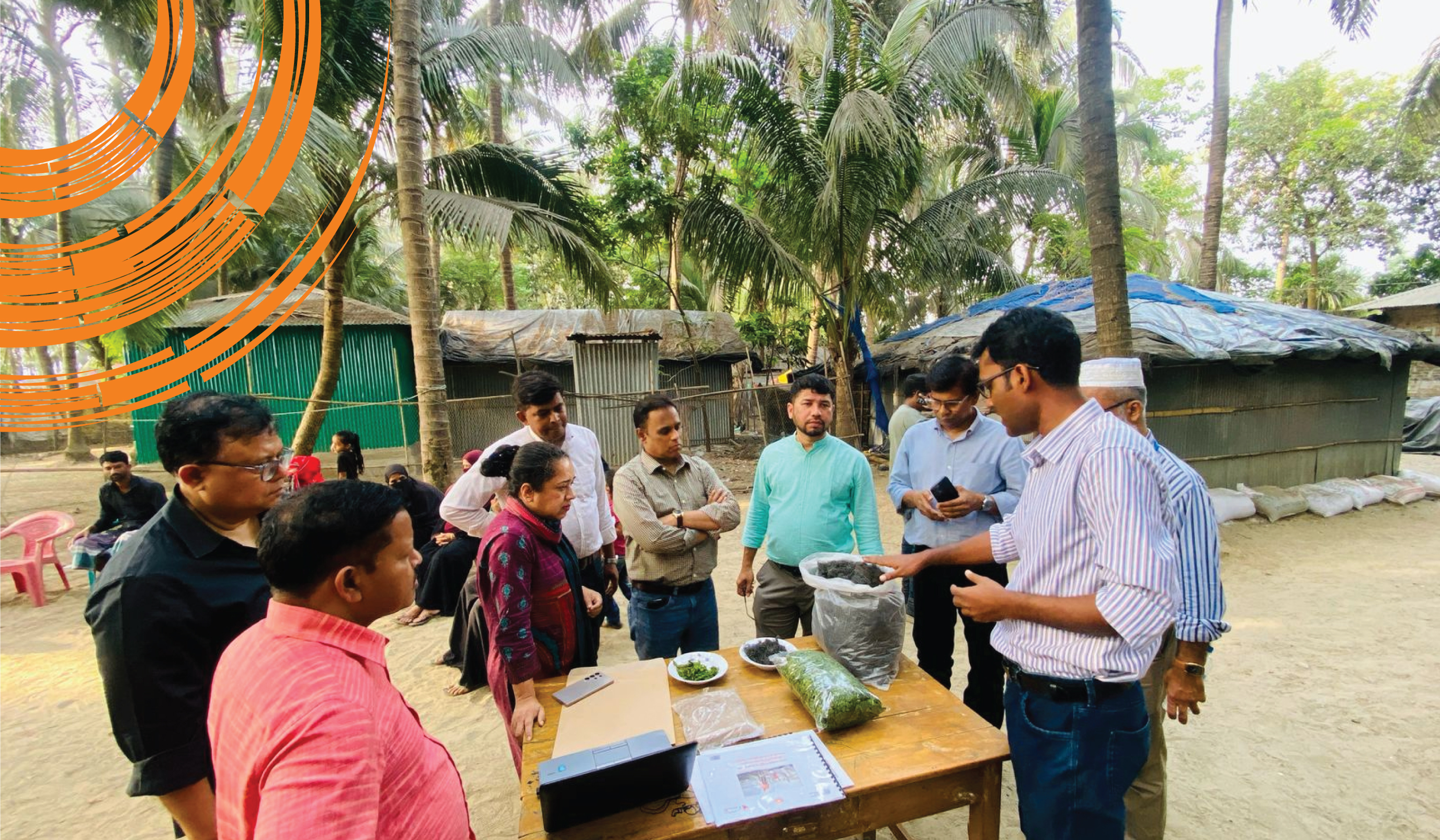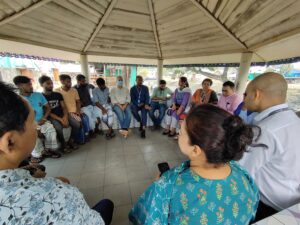
On April 9, 2025, twelve representatives from national media outlets visited the Rezu Khal seaweed site in Ukhiya, Cox’s Bazar, as part of the ongoing collaboration between Innovision Consulting and the International Labour Organization (ILO) to foster sustainable livelihoods through seaweed farming. The visit aimed to highlight the project’s positive impact and the progress made in creating a resilient, inclusive seaweed value chain.
The media team had the opportunity to meet ten seaweed farmers—five women and five men—from Uttor Shonarpara, along with two lead farmers and co-trainers from Nunairchhora.
During the visit, farmers demonstrated various seaweed varieties, such as Gracilaria and Ulva, along with processed products like Gracilaria powder. Journalists explored educational materials, including posters and training aids developed under the project, and watched a documentary that showcased site preparation, farming techniques, and project milestones.

Discussions centered around post-harvest management, value addition, and product diversification. The journalists were introduced to a variety of seaweed-based products, including edible items like seaweed chips and Nimki, as well as non-edible products such as soap, bio-plastic, fertilizer, and agar agar.
Farmers shared their personal stories with the visiting media, reflecting on how the project has positively impacted their livelihoods, with a focus on increased income opportunities and enhanced skill development.
This initiative is part of a broader project led by Innovision in partnership with ILO under the Improving Skills and Economic Opportunities for Women and Youth in Cox’s Bazar, Bangladesh (ISEC) project funded by Global Affairs Canada. Recognizing Cox’s Bazar as a crucial region producing 90% of Bangladesh’s salt, the project aims to revitalize both the salt and seaweed sectors by addressing outdated techniques, limited market access, and financial constraints. By empowering women, youth, minorities, and persons with disabilities, this project is laying the groundwork for sustainable economic development, product diversification, and improved labor standards in coastal communities.